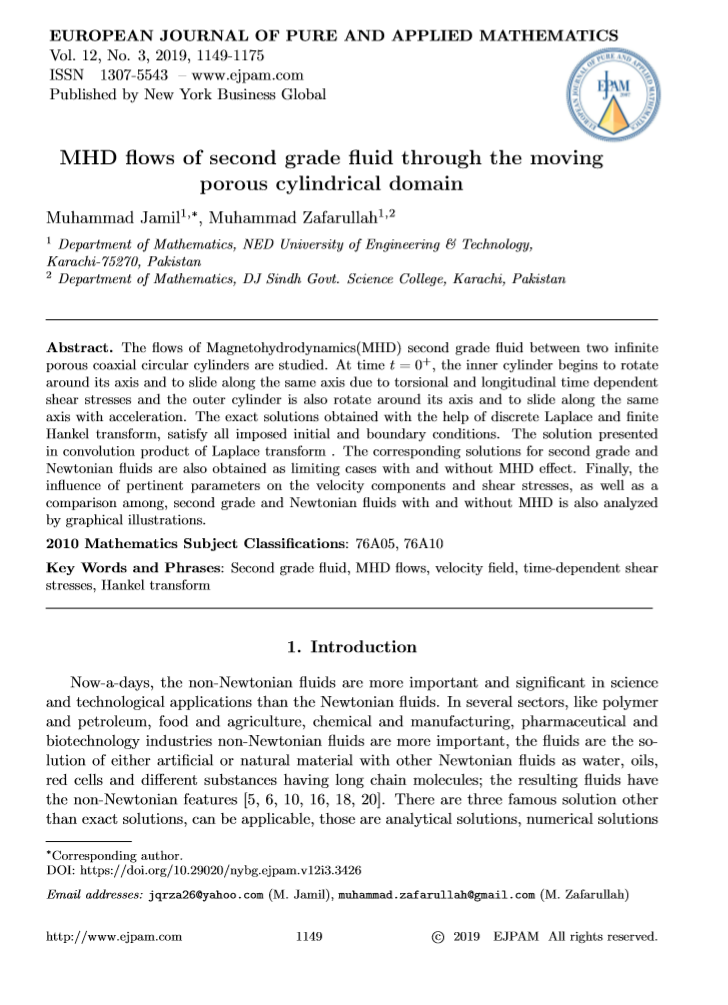Download from Digital Object Identifier - DOI:
European Journal of Pure and Applied Mathematics
Vol. 12, No. 3, 2019, 1149-1175
ISSN 1307-5543 – www.ejpam.com
Published by New York Business Global
MHD flows of second grade fluid through the moving porous cylindrical domain
Muhammad Jamil, Department of Mathematics, NED University of Engineering & Technology, Karachi-75270, Pakistan
Muhammad Zafarullah, Department of Mathematics, DJ Sindh Govt. Science College, Karachi, Pakistan

Congrats! Do you think you could write us a more detailed post about it? This would actually be lovely ^^
https://ejpam.com/index.php/ejpam/article/view/3426/797
Download complete research paper and read introduction, also above explanation.
Thanks for taking interest.
I know I can do that, of course. What I meant is that you are posting within a social media environment where many people interested in science do not have the background. Therefore, having a general-level post, understandable by most, would bring some beneficial value., at least in my opinion. This is the only think I meant.
In any case, congrats for the paper!
Thanks for suggestions.
Well, congratulations on your publication. This sounds like something fancy and complicated. However, coming from a biology background I have no clue of what is the relevance of this paper. Reading the abstract doesn't help much here. Can you tell us a bit more about, what is interesting about it.
Thanks
:)
This is the master level research problem of mathematical model which publish in reputable European research journal, you may read online or download completely from DOI as mentioned at the top of the post.
You should read the introduction as well.
Every matter that can flow, is the fluid. Every fluid flow has its a unique equation and they can be written in the form of system of Partial Differential Equations (PDEs).
Every system of PDEs has several methods to solve them. All are authentic but graphical solution may be unique, that represents the fluid flow.
For the solution, there are some integral transforms, as we applied firstly Laplace transform, which convert the system of PDEs into simple system of algebraic equations. Then we used the Hankel transform which convert the problem from cylindrical domain into rectangular domain, and we can get the general solution in to the any form like convolution theorem of Laplace form.
At the end, graphical representations show the nature of flow, which may interesting for you, if you have some mathematical background.
I shall welcome all serious queries.
Thanks.
Congratulations @zafar-qureshi! You have completed the following achievement on the Steem blockchain and have been rewarded with new badge(s) :
You can view your badges on your Steem Board and compare to others on the Steem Ranking
If you no longer want to receive notifications, reply to this comment with the word
STOPVote for @Steemitboard as a witness to get one more award and increased upvotes!